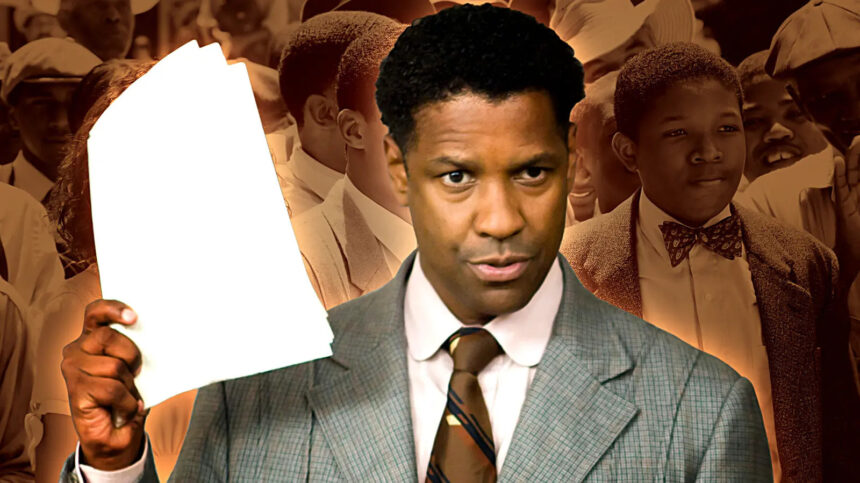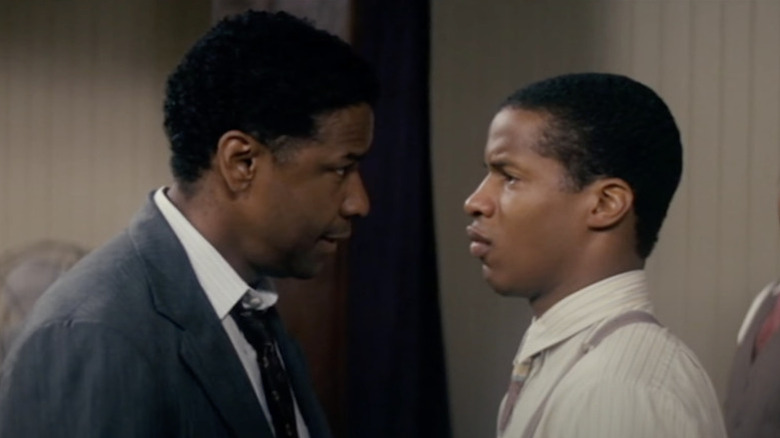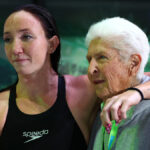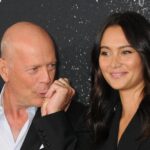Not only does the great and discerning Denzel Washington have a commanding presence with an electric charisma and fiery delivery, but he’s also one of cinema’s greatest orators. His background in theatre and Shakespeare gives him a powerful control over his speech, and his words flow trippingly off the tongue in ways that perfectly fit his characters. (He did play famous civil rights activist Malcolm X multiple times, after all.) We’ve recently seen Denzel Washington have a lot of fun with his scene-stealing performance in “Gladiator II” as a conniving arms dealer who plans to take over Rome, like the way he over-enunciates the word “politics-uh,” poking fun at the current bureaucracy.
This aspect of his performance style made him ideal for his role in “The Great Debaters” as Professor Melvin Tolson, a mercurial debate coach who encourages his students from a tiny, all-Black college in Texas to go up against Harvard University’s championship team. Controlling pitch, using pauses, and clearly articulating your argument are all important parts of making speeches and engaging in a debate, and Washington’s eloquence and authoritative demeanor perfectly carries all of this in his role as a teacher inspiring his pupils. He recites lines from Langston Hughes’ “I, Too, Sing America” and other writing by Countee Cullen.
But Denzel Washington doesn’t just bring his performing skills to the role. He also unexpectedly served as the director of “The Great Debaters,” which was his sophomore feature behind the camera. Denzel Washington’s directorial debut was the emotional military drama “Antwone Fisher,” and he would go on to adapt the powerful stage play “Fences.” Compared to those two projects, “The Great Debaters” flies a bit under the radar, despite having the ultra-high-profile Oprah Winfrey working on the film as the producer. Despite her involvement, “The Great Debaters” took a long time to get off the ground.
The Great Debaters was Oprah’s passion project
Oprah’s production company, Harpo Films, had been trying to bring “The Great Debaters” to life for almost 10 years. This was her passion project, and she became captivated by this true story of Black excellence — an achievement many may not have heard about, but deserved to be widely celebrated. In the 1930s, when the film is set, debate teams were rarely found at Black colleges, and students from these institutions were often underestimated for their intelligence due to decades of racial subjugation and cruelty.
“The Great Debaters” was a passion project for Denzel Washington as well:
“I love seeing other people do well. Nothing gives me greater joy than watching . . . I grew up in the Boys & Girls Club, and I worked with children. That was my life’s work before acting — helping kids. I’ve coached all of my children, as I’ve said many times, and I enjoy that.”
The only blight on Oprah’s success was that the real-life Professor Melvin Tolson’s family submitted a lawsuit against Harpo Films, claiming that they were owed funds for using his life story. However, according to The Hollywood Reporter, the judge ruled that the lawsuit was filed too late and lacked legal grounds.
Oprah describes “The Great Debaters” as a “stand-up-and-cheer” type of movie that leaves you with a feeling of “pure joy, of exhilaration, of hope.” While the classic underdog tale, blended with an inspiring teacher narrative, is a bit formulaic and the direction solid but not visually stunning, “The Great Debaters” hooks you with sharp writing and intelligent performances instead. Ultimately, it’s a very heartwarming film, and it’s thanks to Oprah’s vision and funding and Denzel Washington and his team’s execution that it came to fruition, allowing mainstream audiences to learn about the incredible triumphs of the Wiley College debate team.



















